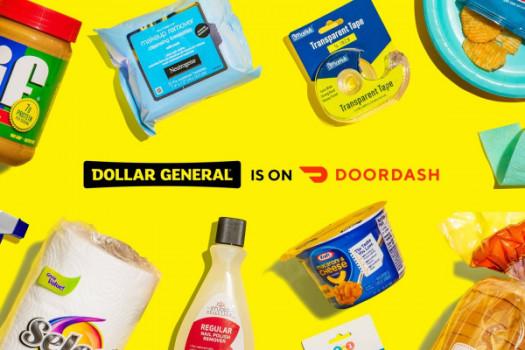
On-demand delivery of home goods is expanding to some new areas

Besides its European expansion, DoorDash is reaching into new areas within the United States via an expanded partnership with Dollar General that’s already available via 9,000 locations. Gig economy services initially proliferated in urban areas, using venture capital money to push the convenience of getting everything from cold medicine to a single candy bar hand-delivered within the hour. However, if you don’t live around tall buildings, the services become fewer and farther between, and so do the shops that work with them.
Now the two promise same-day delivery with no time slot or minimum order size required. A pilot program started this summer with 600 Dollar General locations, and a press release states that more than 10,000 will appear in DoorDash listings by December.
The arrangement highlights many realities of American life, both pre- and peri-pandemic. For some people, it could open up access and independence that otherwise wasn’t available because they live somewhere without Instacart or a fleet of electric Ubers.
It also puts together workers who have been among those hardest-pressed during the last two years. Dollar store employees and couriers have frequently faced low wages, risky conditions, lack of sick leave or health insurance, and a tense customer base despite being deemed “essential.” Now they’ll combine to provide on-demand deliveries (“in under an hour on average”) across some areas that haven’t been living with the services yet.
And even if the partnership works out perfectly for DoorDash, Dollar General, customers, and the people who deliver everything from a pack of Skittles to fresh groceries, their competition will have to deal with it. Reports over the last few years from The New York Times and Slate reflect how independent discount stores and grocery stores can struggle to compete with or operate in areas where dollar stores open. Dollar General sees itself as a solution for food and health deserts, but if other stores close, that could further impact local economies and access to healthy options.








